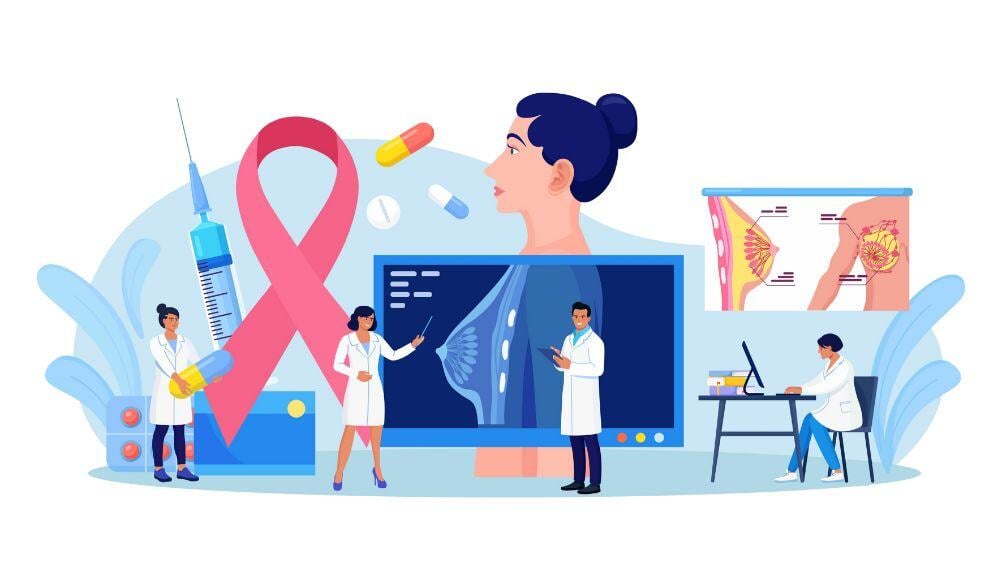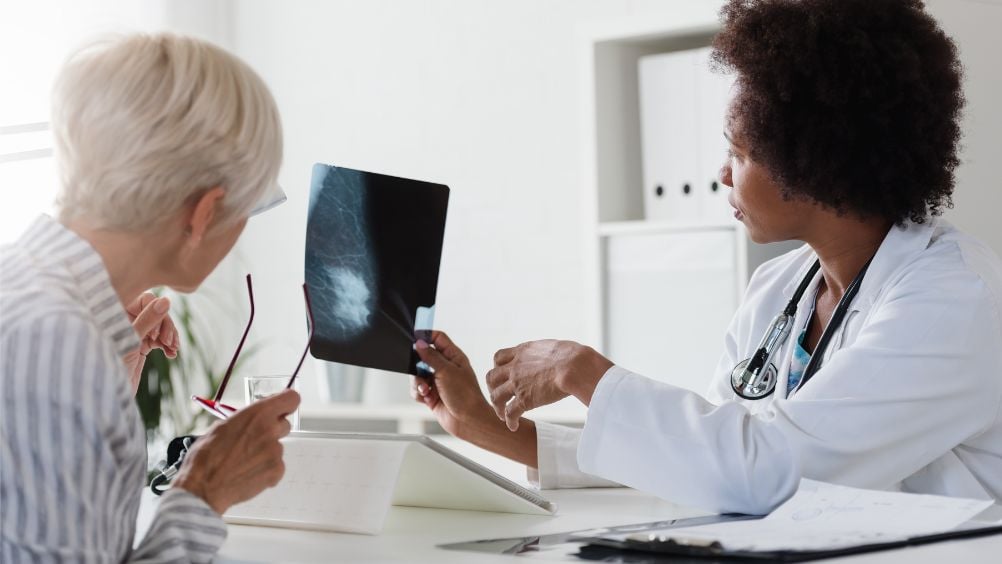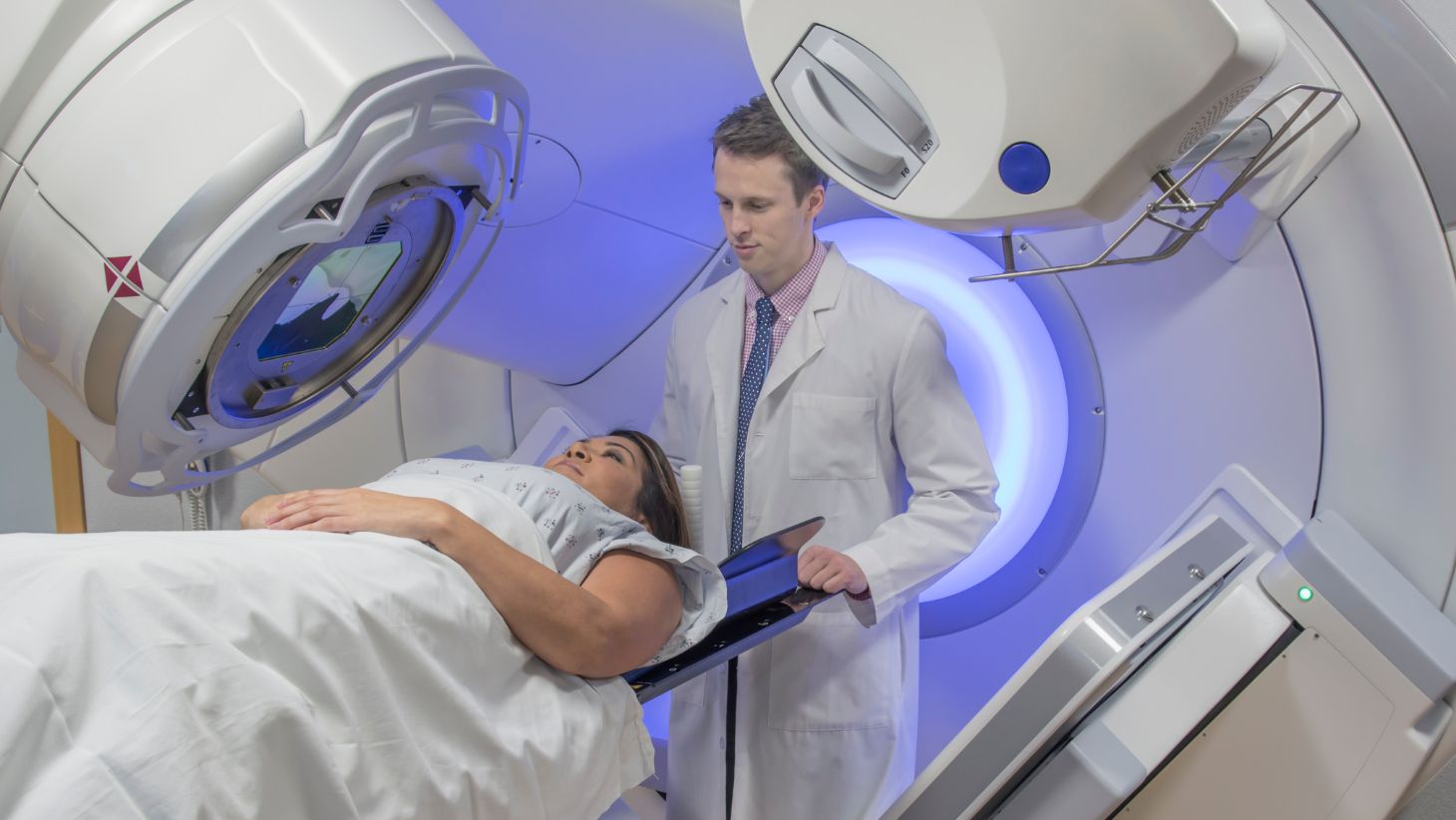Kelly Barton is a planner and a problem-solver by nature. But what she didn’t plan for was a breast cancer diagnosis in January.
“It’s so surreal,” Kelly says. “When we first found out, my husband and I kept looking at each other and saying, ‘Is this really happening?'”
Once the initial shock of her diagnosis eased, Kelly did what she does best—she focused on learning as much as she could about her cancer and choosing the best treatment for herself. While Kelly concentrates on staying positive, she admits that it’s not always easy.
“Sometimes, my very first thought is ‘I can’t do this.’ But then I’ll process it and I’ll think, ‘I can do this. And this is how I’m going to do it,'” Kelly says. “I mentally broke down my treatment into phases, and that’s how I’ve dealt with it. It’s less overwhelming if you’re not looking at the whole, big picture.”
Lessons learned through cancer
Kelly recently finished six rounds of chemotherapy at Willamette Valley Cancer Institute and will soon undergo a double mastectomy with reconstruction. While she has months to go in healing and recovery, she’s learned some important lessons she hopes to share with newly diagnosed patients.
- Take someone with you to your appointments. The amount of information that comes after a cancer diagnosis can be overwhelming. Having more than one set of ears can be helpful, so bring a friend or family member along to write down information and instructions. This will allow you to focus on the discussion, listen to your oncologist and removes the pressure of trying to remember everything on your own.
- Let people help you. Kelly says this is important, although at times, it was difficult advice for her to follow.”A lot of people offered to bring meals by and to run errands for me. At first I said no, but then I realized I needed to let them do it because it was healing for them, as well,” she says. “Don’t hesitate to reach out to the people around you, because they want to support you and, honestly, you need that extra support during treatment.”
- Beware of researching your diagnosis online. It’s common for patients to seek cancer information on the internet. While there’s plenty of helpful resources online, there’s also a lot of misinformation that can appear credible on the surface. That’s why Kelly was careful about where she sought information online.”My oncologist told me, ‘Google is not your friend,'” she recalls. “There’s many different kinds of breast cancer and there’s different stages, so you have to know exactly what you have and what you need to look for. He gave me a list of reputable websites, where I could find the information that was beneficial.”
A colorful distraction during treatment
To help celebrate the end of chemotherapy, Kelly’s friends suggested that she organize a 5K event. As a marathon runner, she found this idea appealing, and she set to work organizing the My Breast Friends 5K Run/Walk to benefit Oregon Cancer Foundation (OCF).
“Cancer patients experience so many expenses beyond their health care bills, especially if they have to take time off work,” Kelly says. “It was important to me that this event help raise money for patients in our community, and the impact that the Oregon Cancer Foundation has on patients’ day-to-day lives is significant.”
The race took place in early June, and despite less-than-stellar weather, nearly 300 people participated in the event, raising close to $13,000 for OCF.
“The event exceeded all of my expectations,” Kelly says. “I can’t adequately put into words what it meant to me to have such a big crowd there to support the cause. So many of us have been affected by cancer in some way; it was nice to come together to achieve this common goal.”
Kelly has decided to make the My Breast Friends 5K an annual event. To see photos from this year’s race and to get information on upcoming events, check out the event’s Facebook page.



